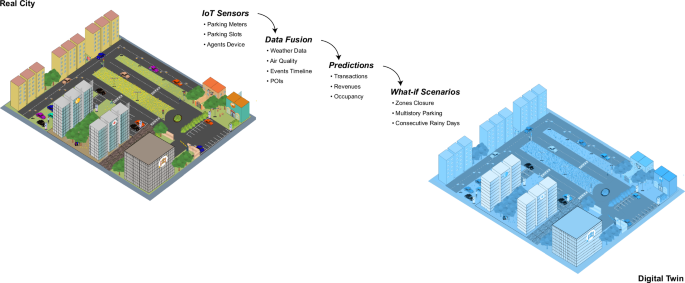Report on Woking Borough Council’s Housing Regulation Initiative and its Alignment with Sustainable Development Goals
Introduction: Addressing Inadequate Housing through Local Governance
Woking Borough Council has announced a new regulatory framework aimed at improving living standards in the private rental sector, specifically targeting smaller Houses in Multiple Occupation (HMOs). This initiative directly supports the United Nations’ Sustainable Development Goals (SDGs), particularly SDG 11: Sustainable Cities and Communities, which calls for access to adequate, safe, and affordable housing for all.
Case Study: The Human Impact of Substandard Housing
The urgency of this policy is highlighted by the experiences of residents like Stuart Daniels, who has faced homelessness and lived in properties he described as “slums.” His testimony underscores the severe impact of inadequate housing on individual well-being, a key concern of SDG 3: Good Health and Well-being.
- Mr. Daniels described living in a poorly insulated wooden conservatory classified as a room, which was “freezing.”
- His landlord was unresponsive to requests for basic amenities and was only present to collect rent.
- The experience had a detrimental effect on his mental health, illustrating the direct link between housing quality and well-being.
- These conditions reflect challenges related to SDG 1: No Poverty, as insecure and poor-quality housing is a critical dimension of poverty.
Policy Framework: Enhanced Licensing for HMOs
To address these issues, the council will extend mandatory licensing to smaller HMOs, which were previously unregulated. The new scheme is designed to enforce higher standards and ensure accountability.
Alignment with Sustainable Development Goals
The council’s policy is a practical application of several key SDGs:
- SDG 11: Sustainable Cities and Communities: The core objective is to raise housing standards, ensuring all rental properties are safe and habitable, directly contributing to Target 11.1 (ensure access for all to adequate, safe and affordable housing).
- SDG 3: Good Health and Well-being: By enforcing minimum standards for safety and maintenance, the policy aims to create healthier living environments and protect the physical and mental health of tenants.
- SDG 10: Reduced Inequalities: The licensing scheme seeks to correct the power imbalance between landlords and vulnerable tenants, ensuring fairness and protecting the rights of all residents.
- SDG 16: Peace, Justice and Strong Institutions: The council is acting as a responsible and effective institution by creating a legal framework for accountability. As Councillor Liam Lyons stated, the goal is to ensure “fairness, safety and accountability in the private rental sector.”
Implementation and Outlook
The new licensing scheme is scheduled to launch on 5 January. It is anticipated that this regulatory action will establish a consistent standard of quality across the private rental market in Woking, supporting landlords who already provide good accommodation and compelling others to improve. This local initiative serves as a model for how municipal governance can contribute to the global 2030 Agenda for Sustainable Development.
1. Which SDGs are addressed or connected to the issues highlighted in the article?
-
SDG 11: Sustainable Cities and Communities
This is the most central SDG to the article. The entire piece focuses on the quality of housing within the city of Woking. Phrases like “decent place to live,” “poorly-maintained shared houses,” and living in “slums” directly relate to the goal of making cities and human settlements inclusive, safe, and sustainable. The council’s action to tighten rules on HMOs is a direct attempt to improve urban living conditions.
-
SDG 3: Good Health and Well-being
The article explicitly connects poor housing to negative health outcomes. Stuart Daniels states, “Mentally it wasn’t good, because no matter what you do, nothing was getting listened to.” This highlights the direct impact of inadequate living conditions on mental health, which is a key component of SDG 3.
-
SDG 1: No Poverty
The article mentions that Stuart Daniels has “experienced bouts of homelessness for roughly two decades.” Homelessness is an extreme manifestation of poverty. The issue of poor-quality, slum-like housing is intrinsically linked to poverty and economic vulnerability, as tenants often have limited choices and resources.
2. What specific targets under those SDGs can be identified based on the article’s content?
-
Target 11.1: By 2030, ensure access for all to adequate, safe and affordable housing and basic services and upgrade slums.
This target is directly addressed. The article describes a tenant living in a “slum” and a “freezing” conservatory room without adequate heating. The Woking Borough Council’s new licensing scheme aims to “raise standards and protecting tenants” and ensure “fairness, safety and accountability,” which aligns perfectly with providing access to adequate and safe housing and upgrading slum-like conditions.
-
Target 3.4: By 2030, reduce by one third premature mortality from non-communicable diseases through prevention and treatment and promote mental health and well-being.
The article connects to the “promote mental health and well-being” aspect of this target. The personal testimony, “Mentally it wasn’t good,” demonstrates how substandard housing can negatively affect mental health. The council’s initiative to improve living conditions is a preventative measure that can contribute to better mental well-being for tenants.
3. Are there any indicators mentioned or implied in the article that can be used to measure progress towards the identified targets?
-
Implementation of a housing licensing scheme
The article explicitly states that Woking Borough Council is launching a new scheme to extend licensing to smaller shared homes, set to launch on 5 January. The implementation and enforcement of this policy is a direct, measurable indicator of action being taken to regulate and improve housing standards.
-
Proportion of population living in adequate housing
While not stating a number, the article implies the existence of inadequate housing by using terms like “slums” and describing a “wooden conservatory with single-pane windows” used as a room. The success of the new licensing scheme could be measured by tracking the reduction in the number of properties that fail to meet the new standards, thereby increasing the proportion of tenants in Woking living in safe and adequate housing.
-
Tenant well-being and satisfaction
The statement “Mentally it wasn’t good” serves as a qualitative indicator of the negative impact of poor housing. Progress could be measured through surveys on tenant satisfaction or a reduction in formal complaints filed against landlords regarding property conditions and mental distress, indicating an improvement in well-being.
4. SDGs, Targets, and Indicators Table
| SDGs | Targets | Indicators (Implied or Mentioned) |
|---|---|---|
| SDG 11: Sustainable Cities and Communities | 11.1: Ensure access for all to adequate, safe and affordable housing and basic services and upgrade slums. |
|
| SDG 3: Good Health and Well-being | 3.4: Promote mental health and well-being. |
|
| SDG 1: No Poverty | (Related to Target 11.1) Addressing inadequate housing as a dimension of poverty. |
|
Source: bbc.com







